- Serbia
Get to know Serbia
- Citizens
Culture and science
Health services
Pension and disability insurance
- Business
Employment
Economy
- Media
- Government
- Contact
Keep in touch
Contact form
Back
Keepin touch
Whether you have a question, comment, suggestion or any problem in the purview of the government, send us your message and we will try to respond as soon as possible. If your problem is not in our purview, we will forward your message to the relevant institution.
Q:
A:
Dacic invites MPs to adopt draft laws necessary for visa breaks
Belgrade,
9 October 2008
Serbian First Deputy Prime Minister and Minister of Interior Ivica Dacic has called on all parliamentary parties to adopt draft laws which will enable visa abolition regardless of their political differences.
At a parliament session, he explained the draft laws on state border protection and on foreigners and stressed that the EU accession is Serbia’s strategic goal, adding that the adoption of the two draft laws is necessary for Serbia’s inclusion in the White Schengen List.
He pointed out that Serbia has two ways towards the EU – the first one is unfreezing of the temporary trade agreement which does not only depend on Serbia but also on the EU, the Hague tribunal and Hague indictee Ratko Mladic.
The second way is the liberalisation of visa regime, and that is only Serbia’s responsibility, said the Minister and invited citizens to take new personal identification documents because the visa liberalisation will be valid only for citizens who have new passport.
According to him, the draft law on state border protection has the innovations and goals such as invulnerability of state border, health and environmental protection, prevention of illegal immigration and cross-border crime as well as demilitarisation of state border.
He explained that the Ministry of Interior’s border police will control the state border, while the law implies the border to be open for a free flow of people and goods, and close for crime, with the high standard of border control.
Dacic added that the law envisages inter-border cooperation and pointed out that its adoption simultaneously implies its synchronisation with the Serbian Constitution.
The Minister also recalled that the government adopted the integrated border management strategy earlier, and added that the draft law on state border protection is a key for the realisation of strategic goals.
By the adoption of the draft law on foreigners, Serbia will for the first time organise foreigners’ entry, movement and stay, stressed Dacic and added that the Schengen Agreement and convention on its implementation were respected while drafting the law.
According to him, the law introduces a series of innovations and envisages four types of visas – airport, transitory or A visa, transitory or B visa, short stay or C visa, as well as temporary stay or D visa.
He specified that the law determines the conditions for foreigners’ entry and stay with or without visa for 90 days, and regulates visa issuance at border crossings.
Dacic explained that a temporary stay of foreigners is limited to one year and it can be prolonged to another one, and warned that the law envisages severe sanctions for carriers who bring foreigners without visas, as well as legal protection for foreigners that are to be deported.
The Minister said that the implementation of the law on foreigners is envisaged for April 1, 2009 because of large preparations, and added that the laws regulating those fields were first adopted in 1979 and 1980, therefore their solutions are surpassed.
He pointed out that Serbia has two ways towards the EU – the first one is unfreezing of the temporary trade agreement which does not only depend on Serbia but also on the EU, the Hague tribunal and Hague indictee Ratko Mladic.
The second way is the liberalisation of visa regime, and that is only Serbia’s responsibility, said the Minister and invited citizens to take new personal identification documents because the visa liberalisation will be valid only for citizens who have new passport.
According to him, the draft law on state border protection has the innovations and goals such as invulnerability of state border, health and environmental protection, prevention of illegal immigration and cross-border crime as well as demilitarisation of state border.
He explained that the Ministry of Interior’s border police will control the state border, while the law implies the border to be open for a free flow of people and goods, and close for crime, with the high standard of border control.
Dacic added that the law envisages inter-border cooperation and pointed out that its adoption simultaneously implies its synchronisation with the Serbian Constitution.
The Minister also recalled that the government adopted the integrated border management strategy earlier, and added that the draft law on state border protection is a key for the realisation of strategic goals.
By the adoption of the draft law on foreigners, Serbia will for the first time organise foreigners’ entry, movement and stay, stressed Dacic and added that the Schengen Agreement and convention on its implementation were respected while drafting the law.
According to him, the law introduces a series of innovations and envisages four types of visas – airport, transitory or A visa, transitory or B visa, short stay or C visa, as well as temporary stay or D visa.
He specified that the law determines the conditions for foreigners’ entry and stay with or without visa for 90 days, and regulates visa issuance at border crossings.
Dacic explained that a temporary stay of foreigners is limited to one year and it can be prolonged to another one, and warned that the law envisages severe sanctions for carriers who bring foreigners without visas, as well as legal protection for foreigners that are to be deported.
The Minister said that the implementation of the law on foreigners is envisaged for April 1, 2009 because of large preparations, and added that the laws regulating those fields were first adopted in 1979 and 1980, therefore their solutions are surpassed.
-
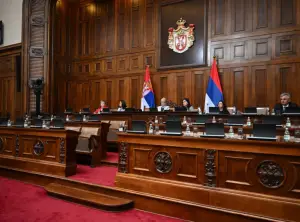 Belgrade, 7 November 2025
Belgrade, 7 November 2025Parliament adopts multiple laws
-
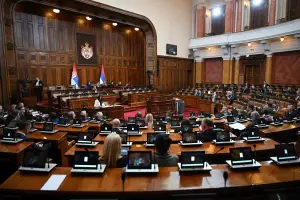 Belgrade, 22 October 2025
Belgrade, 22 October 2025Parliament adopts several laws, ratifies multiple international agreements
-
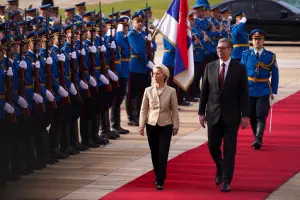 Belgrade, 15 October 2025
Belgrade, 15 October 2025Vučić welcomes Ursula von der Leyen in front of Palace of Serbia
-
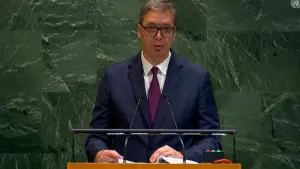 Belgrade/New York, 24 September 2025
Belgrade/New York, 24 September 2025Respect for UN Charter obligation of all countries
-
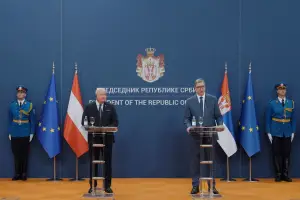 Belgrade, 13 August 2025
Belgrade, 13 August 2025High level of understanding, agreement between Serbia, Austria
-
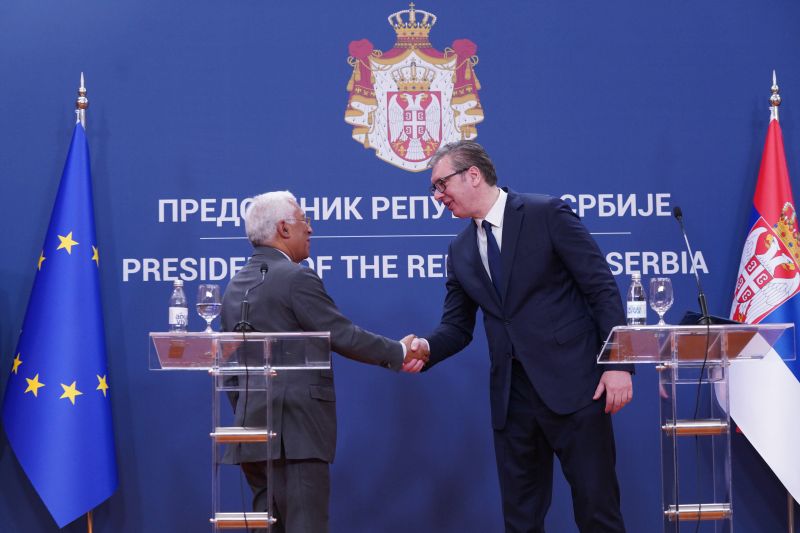 Belgrade, 13 May 2025
Belgrade, 13 May 2025Serbia's sincere, firm commitment to European path, reforms and dialogue
-
 Belgrade, 13 May 2025
Belgrade, 13 May 2025Vučić welcomes European Council President in front of Palace of Serbia
-
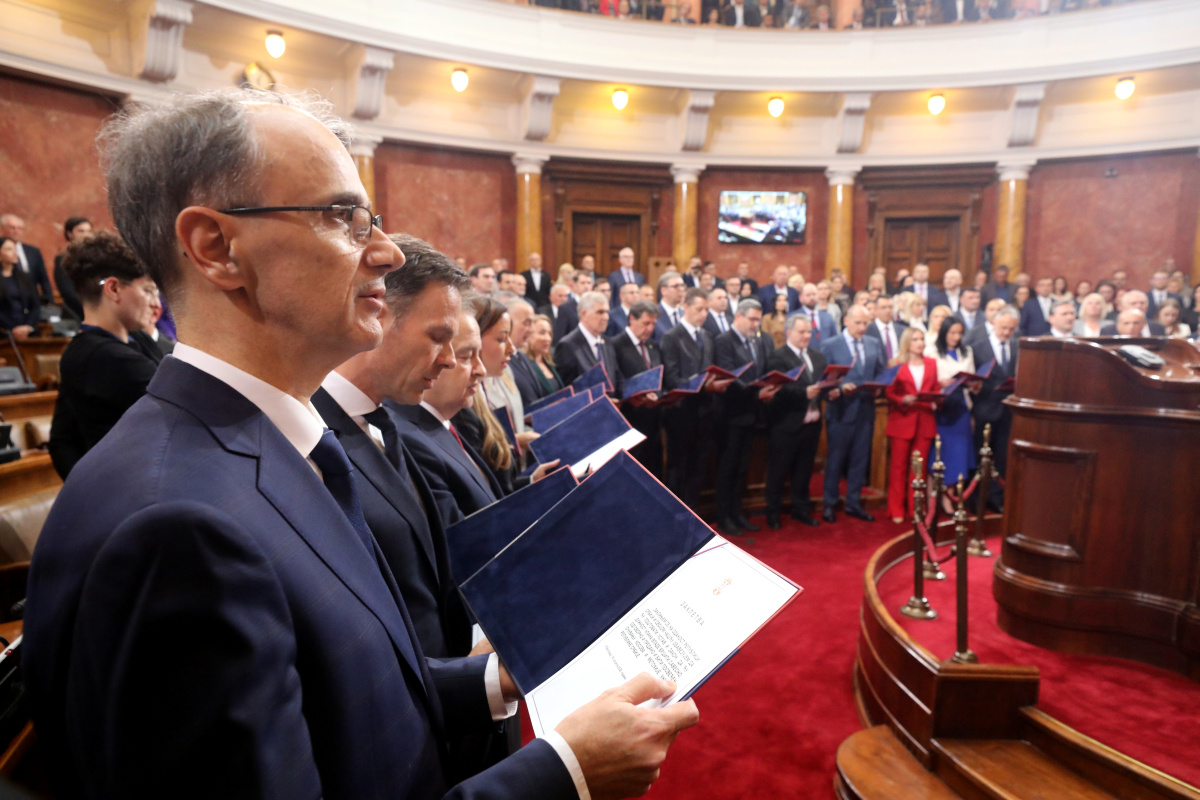 Belgrade, 16 April 2025
Belgrade, 16 April 2025New Serbian government voted in
-
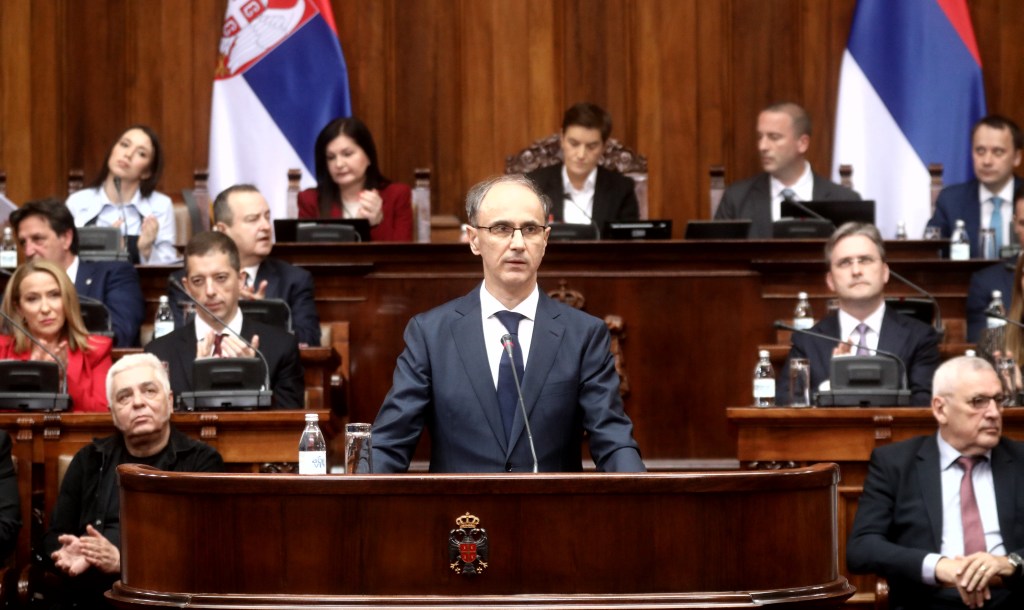 Belgrade, 15 April 2025
Belgrade, 15 April 2025Building unity through dialogue, tolerance, respect for value system
-
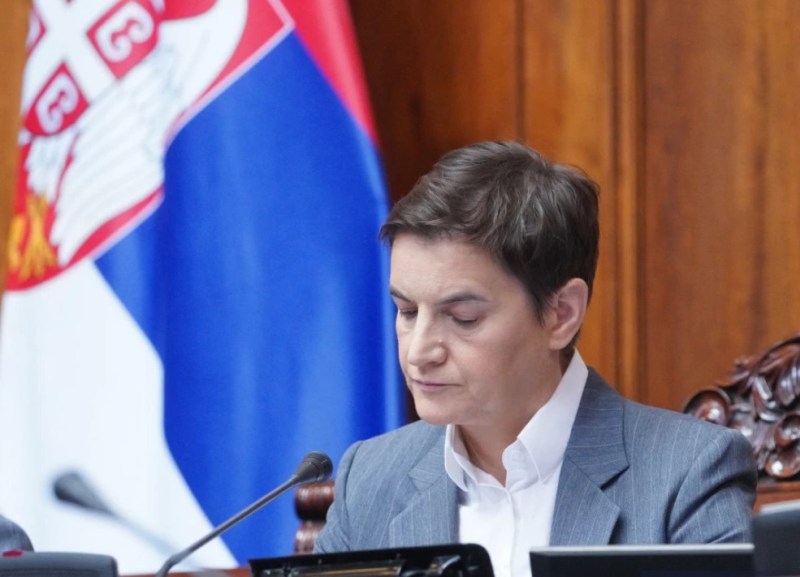 Belgrade, 14 April 2025
Belgrade, 14 April 2025National Assembly speaker convenes session on government election


